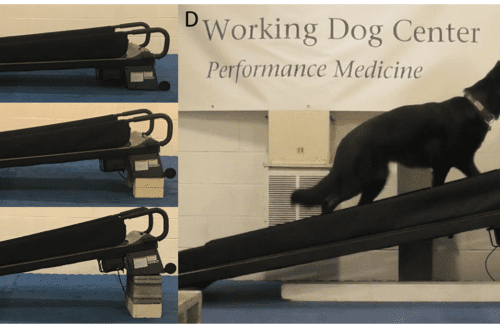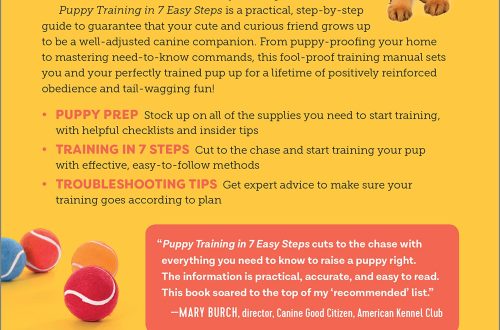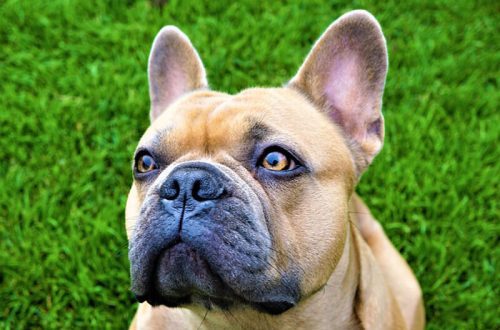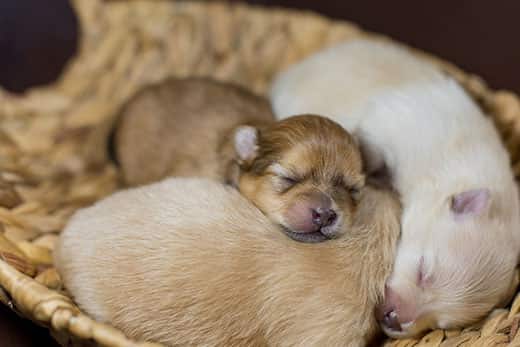
Cúram puppy nuabheirthe: 5 rud nach mór duit fios a bheith agat
Care and feeding of newborn puppies, these squeaky lumps, the sight of which causes incomparable tenderness, can frighten inexperienced owners. Don’t worry. Check out this toddler care guide and find out what it takes to raise a healthy and happy dog.
1. Timpeallacht ghlan
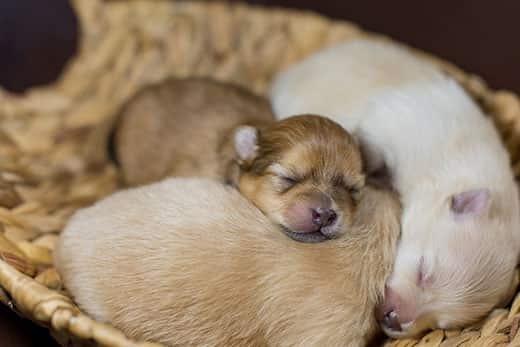 Newborn puppies will spend their first few weeks in the box or playpen where they were born, so it is important to carefully prepare for their arrival. In such a nest, there should be enough space for the mother so that she can lie down and stretch comfortably without crushing the offspring. The height of the walls should be such that the dog could get inside by simply stepping over them, and the puppies could not get out. It should also be located in an easily accessible place so that you can change the bedding every day.
Newborn puppies will spend their first few weeks in the box or playpen where they were born, so it is important to carefully prepare for their arrival. In such a nest, there should be enough space for the mother so that she can lie down and stretch comfortably without crushing the offspring. The height of the walls should be such that the dog could get inside by simply stepping over them, and the puppies could not get out. It should also be located in an easily accessible place so that you can change the bedding every day.
In the early days, the mother herself cleans up after her puppies, but if the litter is very large, she may need help. Around the end of the second or beginning of the third week, the babies will open their eyes and become more active. Once they start walking, you can move them to a larger playpen with room to play, and cleaning up will require even more attention. The main thing is that the environment for newborn puppies is safe and clean.
2. Teas
Newborn puppies don’t thermoregulate, so they need to be protected from drafts, warns the American Kennel Club (AKC). Although babies will snuggle up to mom and each other to keep warm, it’s best to use a heat lamp during their first month of life.
The lamp must be placed high enough above the playpen to prevent any risk of burns to the mother or her pups. Make sure there is a cool corner in the playpen where the puppies can crawl in if they get too hot. During the first five days, the temperature inside the arena must be maintained at +30–32 ºC. From days five to ten, gradually reduce the temperature to 27 degrees, and then continue to reduce it to 24 degrees by the end of the fourth week, advises PetPlace.
3. Care and nutrition
For the first few weeks, puppies meet their nutritional needs by feeding exclusively on their mother’s milk. Mom can move much less during this time – feeding takes a lot of energy, and her daily calorie requirement will be higher than usual, reports AKC. To ensure that the mother and pups receive adequate nutrition throughout the feeding period, the dog should be fed several servings of quality puppy food throughout the day. Your veterinarian will recommend the type and amount of food your nursing dog needs.
It is important to monitor the weight of the puppies. If you notice that some puppies are malnourished, you will have to watch the litter during feeding and make sure that the smallest puppies grab the mother’s fullest nipples, writes The Nest. Puppies that whine or squeak frequently are also likely to be hungry and require more attention during feeding.
If the smallest puppies are still not showing signs of healthy growth or weight gain, contact your veterinarian. They may need early feeding. It’s important to monitor the mother for symptoms of mastitis, a breast infection that can interfere with milk production, reports Wag!. The symptoms of mastitis are red and swollen nipples and an unwillingness to feed the pups. If the mother is sick, she may even snap at the puppies when they try to eat. If you notice any of these signs, contact your veterinarian immediately.
By the fourth or fifth week, the puppies are teething and weaning begins, and the dog’s milk production slows down. As soon as you notice that the little ones are trying to taste mom’s food, it’s time to offer them a bowl of puppy food.
4. Stádas sláinte
Small puppies are prone to illness and infection, so you need to carefully monitor their health. Puppy care should include regular veterinary check-ups for signs of infection or health problems. Report any unusual symptoms to the specialist, such as vomiting, diarrhea, or if the puppy does not stand up or refuses to eat.
Small puppies are also especially vulnerable to fleas and other parasites, writes The Spruce Pets. Talk to your veterinarian about proper prevention and treatment methods. In the first weeks of life, puppies receive antibodies from their mother during feeding, which protect them from diseases. After about six to eight weeks, the antibody supply is depleted and it is time for the first vaccination. Remember that you and all family members need to wash your hands thoroughly before handling puppies to reduce the risk of them being infected by any bacteria that may be on your hands.
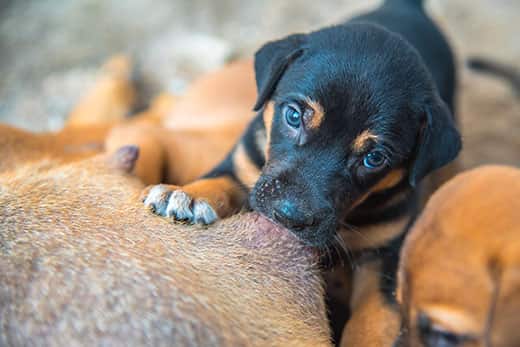
5. Sóisialú
By the fourth week, babies are ready to start interacting with people and other dogs. The period from the fourth to the twelfth week is the time of socialization of the puppy. He needs to learn as much as possible about the world in which he will live, adapt well and grow up to be a happy dog, writes The Spruce Pets. Poorly socialized puppies often grow up to be anxious dogs that may have behavioral problems. Whether you plan to keep puppies for yourself or give them to good hands, it is important to caress them, play with them, let them explore the world and give them as many new experiences as possible.
Caring for a newborn puppy is a lot of work, but the first few weeks will fly by in an instant. If you plan to give away puppies, then you will say goodbye to them very soon, and this often causes mixed feelings. So enjoy the time you can spend together. When it’s time to break up, you’ll know for sure that you gave them the best start into adulthood.



